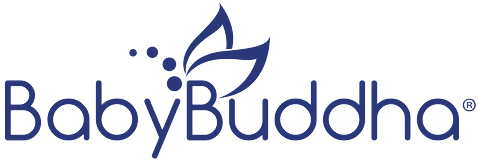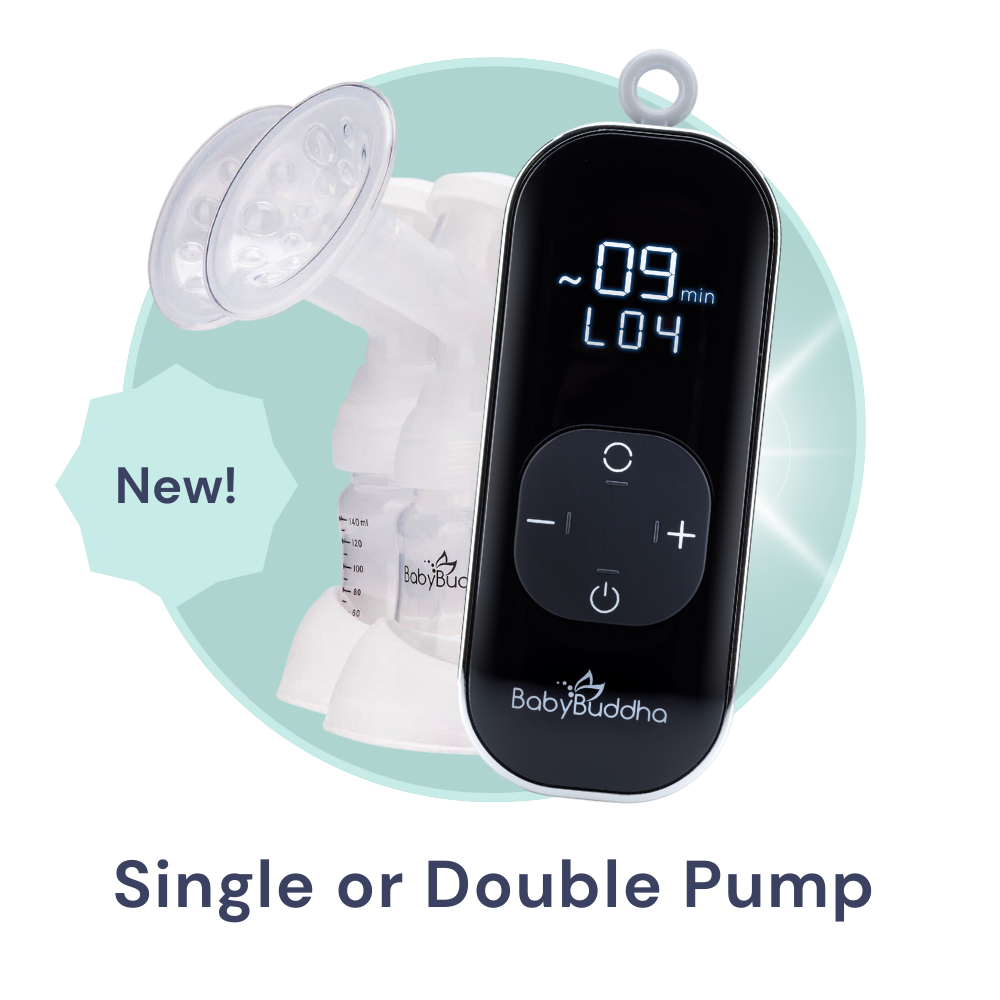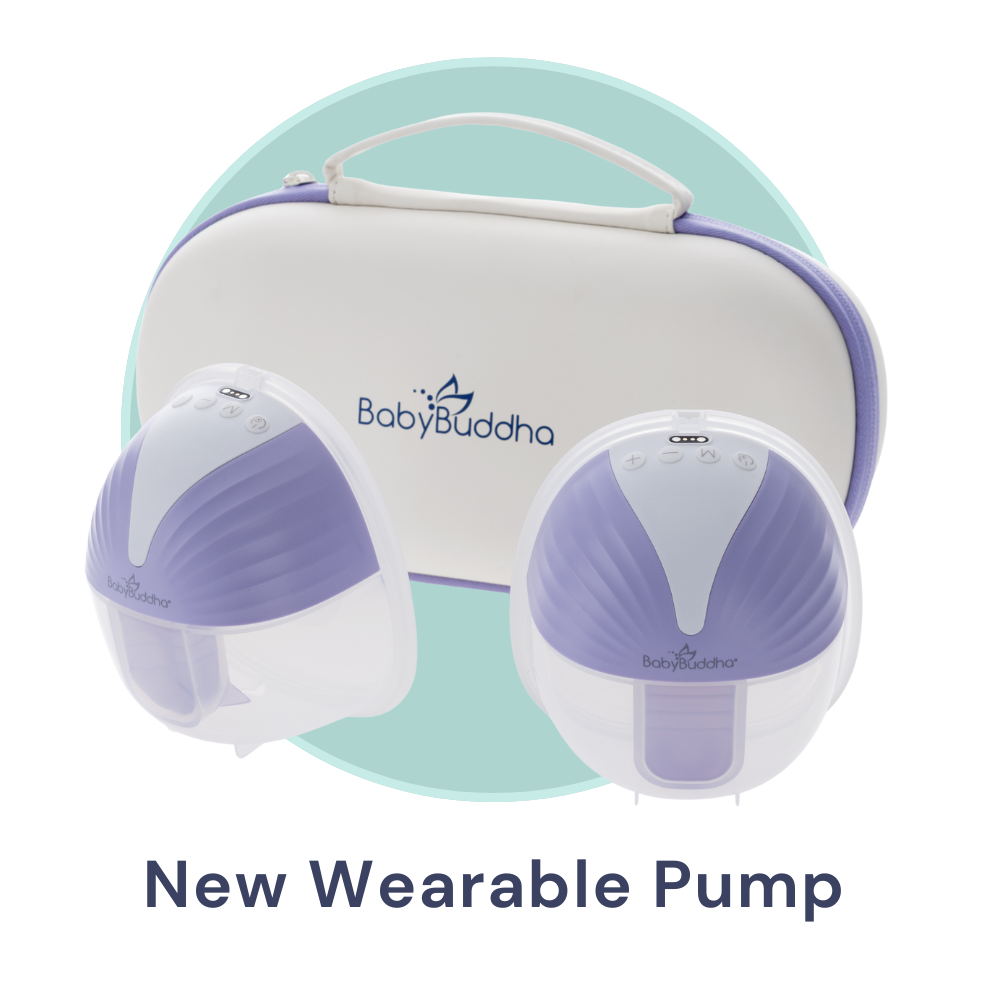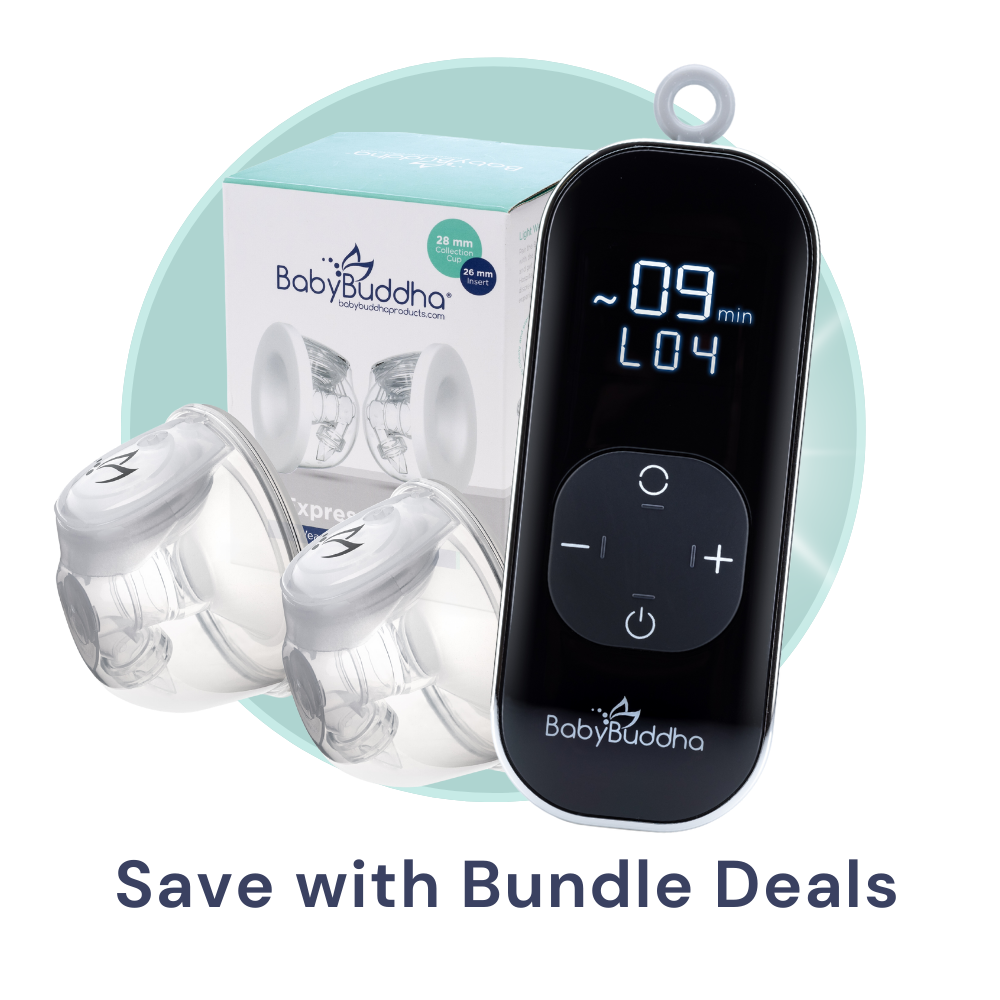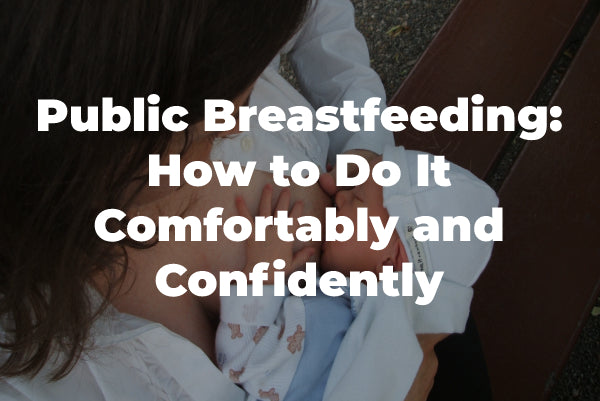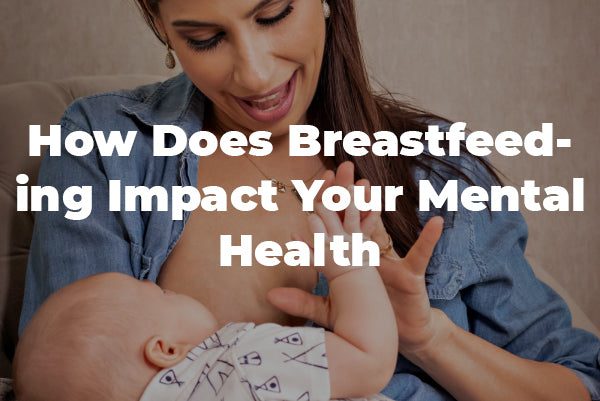Welcome to parenthood -- a barrage of constant decisions, judgments, and information on making the right decisions for your child. You might find yourself asking;
What sort of enrichment is necessary for development?
How should I sleep-train by baby? What should my baby eat?
Amongst the constant input from the internet and other parents, breastfeeding always seems to be a hot topic for those who are bold enough to broach the subject. Whether out of convenience, nutritional concerns, or attachment, everyone seems to have an opinion, especially as their infant gets older.
If you choose to breastfeed, you might have a lot of questions about how to make sure your baby is getting the nutrients they need from baby milk. Read on for the best tips on making sure you're nourishing your baby to the best of your ability.
1. Store and Reheat Breastmilk Safely
Safely storing your breast milk will extend the life of the milk and protect your baby from bacteria or harmful pathogens. You can certainly store it safely at room temperature for several hours-- beyond that, it should be stored in the refrigerator or correctly frozen in the freezer.
Once in the refrigerator, breast milk can last for several days. Freezing your milk will allow the breast milk to last for months.
Once you are ready to reheat and use the breastmilk you have stored, it's best to thaw in a refrigerator overnight. If you need the breast milk immediately, run under running water or immerse in a pan of warm water. Swirl the bottle around and test on your wrist before feeding in order to make sure it's not too hot.
Never microwave your breast milk, as this can cause uneven heating. It might even cause a loss of nutritional value of your breast milk.
2. Recognize Signs of Hunger
Breastfed babies will need to eat more frequently than those who are fed with formula, nursing every 1-3 hours. This will end up being 8-12 times a day on demand (as your baby indicates they need to be fed). Signs of hunger include:
- Waking up
- Putting hands in and around the mouth
- Turning the head from side to side
- Smacking lips
- Sticking out their tongue
- Crying (a late stage of hunger)
You'll need to nurse your baby 10-20 minutes on each nipple. Try not to let the infant latch longer than this.
3. Understand Breast Milk Nutrition
Breast milk contains the fatty acids, lactose, amino acids, vitamins, minerals, and enzymes necessary for human development. It contains all of the nutrients needed for:
- Easy digestion
- Brain development
- Protection from illness and infections.
Breastfeeding has also been shown to improve the health of mothers by reducing risk of:
- Ovarian cancer
- Breast cancer
- Osteoporosis
For the first 6 months, breast milk is all your baby needs for nourishment. If you wean your baby prior to their first birthday, your doctor will likely recommend iron-fortified formula.
If you're exclusively breastfeeding, your doctor may recommend 400 IU of vitamin D daily for your baby's bone health. It's important to remember that babies can become vitamin D deficient (especially in the winter).
Remember-- do not give your baby cow’s milk until they are at least 12 months old. Cow's milk unfortunately does not provide the right kind of nutrition your infant needs for healthy development-- at least until they are much older.
4. Eat a Balanced Diet
A well-balanced diet will include plenty of calcium and meals from all five major food groups. If you don’t eat meat or dairy, you can get calcium from foods such as:
- Broccoli
- Sesame seeds
- Tofu
- Kale
Talk to your doctor about taking any extra supplements if you feel your current diet isn't giving you enough nutrients. Continuing to take a prenatal vitamin can be helpful in this case.
If you notice your baby is reacting to your breastmilk after you've eaten spicy foods, broccoli or milk, stop eating those things. It should make their sleep time much less fussy!
As you are feeding another human, remember to eat about 500 extra calories per day. Stay hydrating by drinking extra fluids.
5. Avoid Smoking and Caffeine
While you may eat some foods that you weren't able to during pregnancy, you should continue to limit your intake of caffeine and alcohol. Don’t have more than one alcoholic drink each day. Avoid drinking caffeine and alcohol less than two hours before feeding.
If your baby reacts to the components of cow's milk, their symptoms may include:
- Gas
- Vomiting
- Diarrhea
- Rash
- Colic.
Your baby also can have an outright allergic reaction to cow's milk. They may get a milk allergy baby rash on their face or have trouble breathing.
Over-the-counter drugs and prescriptions can get into your baby's milk. Check with your doctor before taking them, especially if you are worried about your child accidentally consuming pharmaceuticals.
Additionally, avoid all smoking while breastfeeding. Along with the chemicals that can transfer into your breast milk, smoking can actually cause you to produce less milk.
6. Know When to Call the Doctor
Part of healthy breastfeeding includes knowing when to call the experts. Call your doctor if you experience:
- A red, sore, or painful area where your baby latches
- A fever or aches that can indicate an infection
- Breasts that feel engorged or overfilled
Remember, always call your doctor if it seems that your baby is losing weight.
Baby Milk and Beyond: Supporting Your Breastfeeding Journey
At BabyBuddha, we care about learning together and supporting a healthy breastfeeding experience for mother and baby. Whether this is your first child or your fifth, we understand that every infant and every childrearing experience is different. Our products are specially designed to safely and comfortably pump or nurse your baby with however much baby milk you are producing.For our recommended breastfeeding products, browse our store. With the right pump and accessories, what will you do with your freedom?
